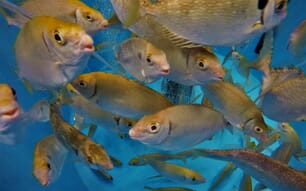The move marks a step forward for science and for consumers, and will spare approximately 7,000 mice used in UK testing each year. The decision comes ahead of a European Union-wide 2014 deadline requiring all member countries to end the testing. However, HSI Europe says all EU countries must now follow Britains lead and end the use of mice for shellfish toxicity testing.
Last year, the EU revised its shellfish-testing regulations to accept the use of non-animal tests for most toxins, but gave member countries until December 2014 to comply. HSI believes prolonging the use of animal tests for toxin screening is unjustified and puts consumer health at risk.
Humane Society International applauds the UK Food Standards Agency for being pro-active ahead of the 2014 deadline and replacing animal testing for shellfish with methods that are at the cutting-edge of safety testing, said Troy Seidle, director of research and toxicology for HSI Europe.
Mice used in these tests can die one of the most agonising deaths imaginable, many of them suffocating as the toxins starve their lungs of oxygen. These tests are unreliable as well as unethical, so there is now no excuse for other EU member countries to delay better protecting consumers by also switching to superior animal-free tests.
The FSA traditionally used mice to test shellfish samples for paralytic and lipophilic toxins that are harmful to humans; however, the agency will now switch completely to more advanced and sensitive physicochemical test methods. As well as the ethical advantage of animal-free testing, the new methods for detecting toxins produce a more targeted analysis.
Testing seafood samples for potentially harmful toxins is essential to protect human health. However, the mouse test can cause animal suffering and has serious scientific limitations that have contributed to it being abandoned altogether in some countries such as Germany, says HSI. Austria, Finland, Poland, Portugal and Romania are amongst other countries that do not use the test.
Nearly 600,000 mice are used each year in the EU in laboratory tests to detect marine biotoxins. Countless more are used each year in North America and elsewhere in the world where precise statistics are not kept, says HSI.
Furthermore, the test used on mice has never undergone formal scientific validation. Experts from around the world, including the World Health Organisation, acknowledge that its lack of sensitivity means it cannot detect toxins at levels required by EU regulators to deem shellfish safe for human consumption, concludes HSI.
Further Reading
|
| - | Go to our previous news item on this story by clicking here. |



